- Browse
- Java
Java Courses
Java courses can help you learn object-oriented programming, data structures, exception handling, and multithreading concepts. You can build skills in writing efficient algorithms, debugging code, and developing user interfaces. Many courses introduce tools like Eclipse and IntelliJ IDEA, which are commonly used for coding and testing Java applications, along with frameworks such as Spring and Hibernate that facilitate web development and database management.
Popular Java Courses and Certifications
 Status: PreviewPreviewU
Status: PreviewPreviewUUniversity of Leeds
Skills you'll gain: Web Design and Development, Web Development, Web Content Accessibility Guidelines, Web Design, Hypertext Markup Language (HTML), Front-End Web Development, Full-Stack Web Development, Data Security, Web Content, Back-End Web Development, Program Development, Cascading Style Sheets (CSS), Javascript, Information Privacy, Computer Architecture
Beginner · Course · 1 - 4 Weeks
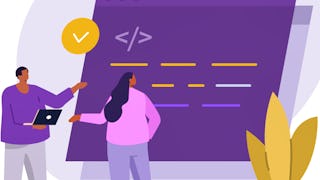 Status: Free TrialFree Trial
Status: Free TrialFree TrialSkills you'll gain: React.js, Jest (JavaScript Testing Framework), Front-End Web Development, Unit Testing, UI Components, Ajax, Web Applications, Event-Driven Programming, Javascript, Software Testing, Application Programming Interface (API)
Intermediate · Course · 1 - 3 Months
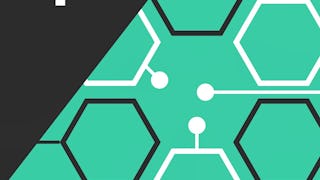 Status: NewNew
Status: NewNewSkills you'll gain: API Testing, Test Automation, Performance Testing, Server Side, Query Languages
Intermediate · Course · 1 - 3 Months
 Status: PreviewPreviewB
Status: PreviewPreviewBBoard Infinity
Skills you'll gain: Kotlin, Android Jetpack, Cross Platform Development, Mobile Development, Cloud Deployment, Android Development, Back-End Web Development, Google Cloud Platform, MongoDB, User Interface (UI), Restful API, Application Programming Interface (API), API Design
Intermediate · Course · 1 - 4 Weeks
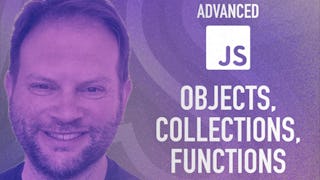 Status: Free TrialFree Trial
Status: Free TrialFree TrialSkills you'll gain: Object Oriented Programming (OOP), Javascript, Software Design Patterns, Data Management, Data Structures, Prototyping, Web Development, Performance Tuning
4.9·Rating, 4.9 out of 5 stars9 reviewsIntermediate · Course · 1 - 4 Weeks
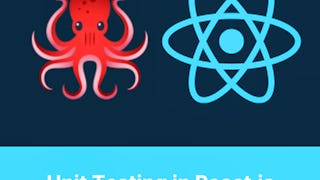
Skills you'll gain: Jest (JavaScript Testing Framework), Unit Testing, Test Case, React.js, API Testing, Test Driven Development (TDD), Software Testing, Mockups, Javascript
4.3·Rating, 4.3 out of 5 stars7 reviewsIntermediate · Guided Project · Less Than 2 Hours
 Status: PreviewPreviewC
Status: PreviewPreviewCCoursera
Skills you'll gain: Ajax, JSON, Javascript, Frontend Integration, Application Programming Interface (API), Restful API, Web Applications, Application Security, Debugging
4.8·Rating, 4.8 out of 5 stars8 reviewsIntermediate · Course · 1 - 4 Weeks

Skills you'll gain: React.js, JavaScript Frameworks, Javascript and jQuery, Web Development Tools, Javascript, Software Design Patterns, Web Development, Application Development, Mobile Development
4.3·Rating, 4.3 out of 5 stars7 reviewsAdvanced · Guided Project · Less Than 2 Hours
 Status: Free TrialFree TrialL
Status: Free TrialFree TrialLLearnKartS
Skills you'll gain: Git (Version Control System), Version Control, Integrated Development Environments, Eclipse (Software), Application Lifecycle Management, Release Management, Collaborative Software, Code Review
Intermediate · Course · 1 - 4 Weeks
 Status: NewNewStatus: Free TrialFree Trial
Status: NewNewStatus: Free TrialFree TrialSkills you'll gain: TypeScript, Object Oriented Design, Node.JS, Role-Based Access Control (RBAC), Object Oriented Programming (OOP), Webpack, React Redux, Back-End Web Development, React.js, Full-Stack Web Development, Web Development, MongoDB, Front-End Web Development, Javascript, Application Programming Interface (API), Software Design Patterns, API Design, Programming Principles, Software Development, Debugging
Beginner · Specialization · 3 - 6 Months
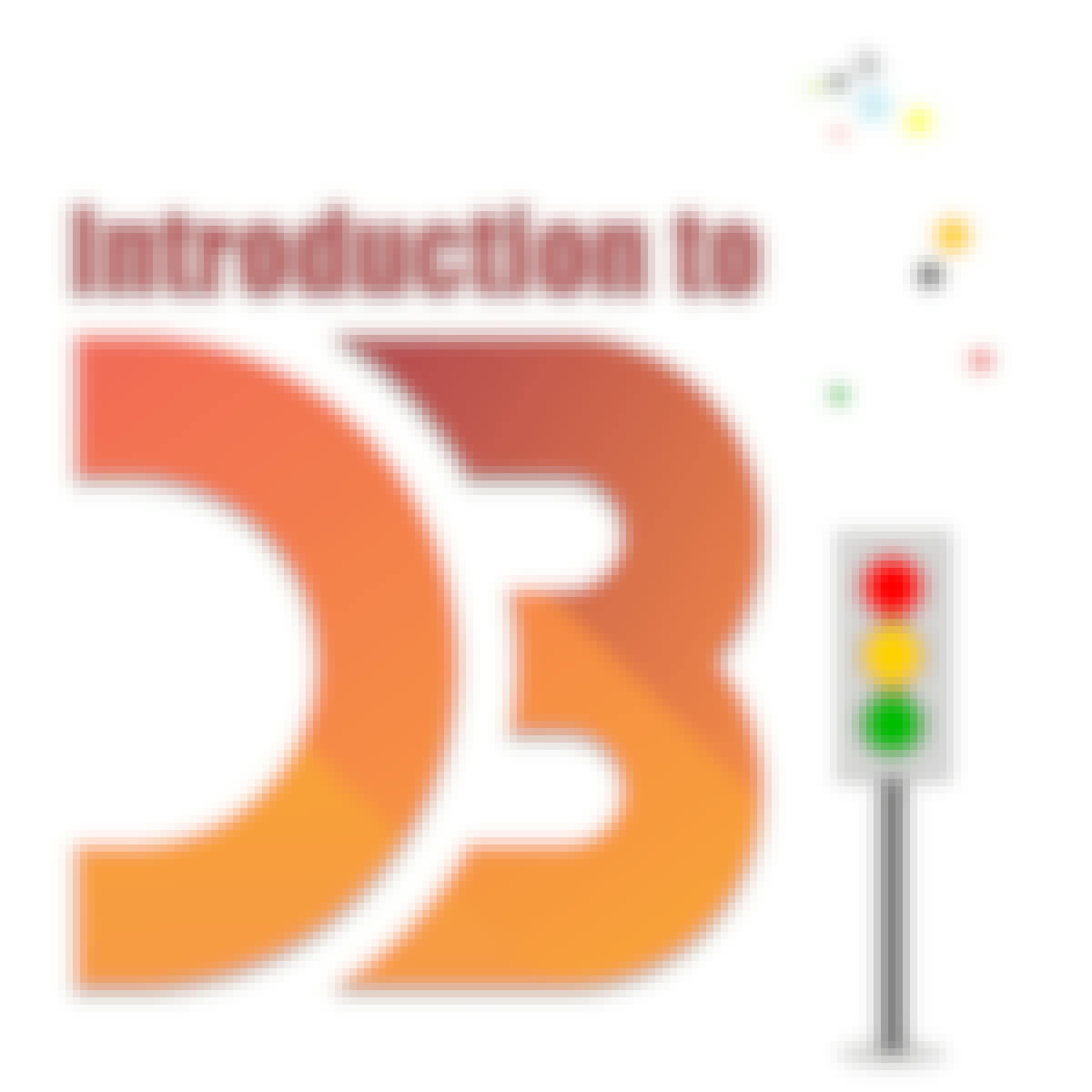 C
CCoursera
Skills you'll gain: Data Visualization Software, Data Visualization, Interactive Data Visualization, Visualization (Computer Graphics), JSON, Data Mapping, Javascript
3.7·Rating, 3.7 out of 5 stars7 reviewsIntermediate · Guided Project · Less Than 2 Hours
 Status: Free TrialFree TrialM
Status: Free TrialFree TrialMMicrosoft
Skills you'll gain: Responsive Web Design, Cascading Style Sheets (CSS), Data Persistence, Event-Driven Programming, HTML and CSS, Web Applications, Front-End Web Development, Semantic Web, Javascript, Web Content Accessibility Guidelines, Data Storage Technologies, Application Security, User Interface (UI), Data Validation
3.5·Rating, 3.5 out of 5 stars6 reviewsBeginner · Course · 1 - 3 Months
In summary, here are 10 of our most popular java courses
- How to Get Into Web Development: University of Leeds
- Building Interactive User Interfaces Using React Library: NIIT
- REST Assured Fundamentals: Packt
- Advanced Kotlin for Multi-Platform Development: Board Infinity
- Advanced JavaScript 3: Objects, Collections, Functions: Scrimba
- Unit Testing in React.js: Create a Unit Test Suite: Coursera
- AJAX for Web Developers: Coursera
- React - Working with Higher Order Components: Coursera
- Branching and Merging in Git: LearnKartS
- Modern Web Development with TypeScript: Edureka










